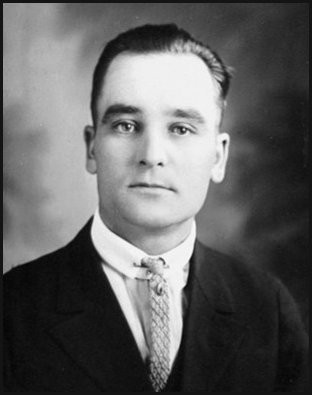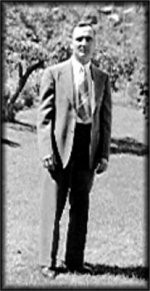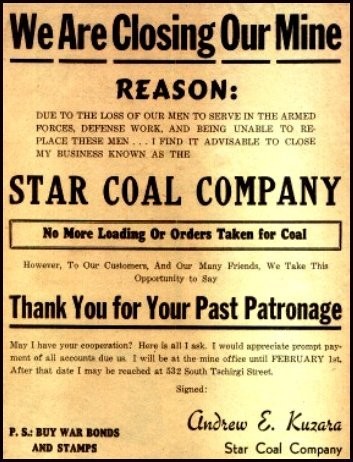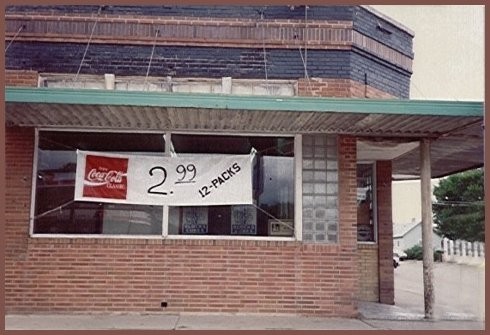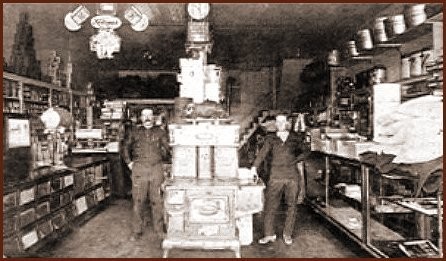During the 1930's, Andrew's father George ran some cattle on the surface of the coal land, and also acquired some land of his own in the vicinity, in the area
referred to as the Beatty Gulch area. The raising of cattle was actually his first love but he never could afford to go into the cattle business, yet he accumulated a herd of about 75 head. The
selling of the mine to his son Andrew came at a time when he was advancing in years, and during the time Andrew had assisted him with the operation of the mine for all those years. In 1935, Andrew
purchased the Star Mine from his father George, and operated the mine until the fall of 1942 when economic conditions forced the closing of the mine. The coal it produced for so many years was no
longer the fuel of choice for heating the homes and factories of a changing world. The Star Mine supplied the fuel needs of the area for some fifteen years. Not only did the mine furnish employment
during those years when jobs were hard to find, but also during the Depression when there were fewer still jobs to be found. The mine was a steady source of employment to as many as 35 persons of the
community for some fifteen years.
By 1935, Andrew's two sons had grown enough to help with chores around the outside along with their mother's sister Zona Egbert, who was the
office clerk, and Andrew's brother Mike who had worked there off and on for some time.
Some newspaper articles of the day:
11/20/30--"Natural Gas Comes to Sheridan"
It is noted that announcements of the introduction of natural gas to home and industry users are becoming more and more frequent and while
many potential users are resisting its installation due to their faithfulness to the coal industry even though they may no longer be dependent upon their income from that source as they have gone to
other employment, nevertheless some installations were gradually being installed, replacing the traditional coal fired ranges and heaters.
1933--The National Recovery Act (NRA)
Under the NRA, the United States government more or less took control of the coal industry with the formation of the Bituminous Coal
commission. Among other things, it recommended a minimum wage scale to be paid to coal miners of $5.42 per day. The labor unions adopted this base scale of pay, enforcing it at whatever facility they
were organizing. Under the NRA, the Unions, with the power given them under this Act carried on a concentrated program of union organization at all the mines.
11/1/33--"Wagon Miners May Join Union." "Effort Being Made Here to Enroll All Coal Mines"
George Lambert, Vice-President of the United Mine Workers of America has been successful in forming a new local at the Storm King and the
Black Diamond Mines west of Sheridan. Attempts also being made to organize the Star Coal Co and Custer Coal Co north of Sheridan. The National Recovery Act is making possible the enforcement of
organized labor with its minimum union wage scale as required by NRA.
11/2/33--A display advertisement in the Sheridan Press announced to the public that wages have been raised and the number
of hours reduced to conform with NRA requirements. That ad was signed by Victor Eccli, Bob Fanto and R.F. Hotchkiss as representatives of the NRA.
2/26/36--"J.E. Lee Killed in Auto Mishap on Icy Curve Near Wheatland." Man Prominent Here and Over the State is
Victim."
"General Manager of Sheridan Wyoming Coal Co, Age 47; Also President of the Wyoming Taxpayers League on Business Trip for his Company--" (Andrew Kuzara of
the Star Coal Mine of Sheridan also a member of the Coal Commission Committee along with Lee was to have accompanied Lee to the Denver meeting but was unable to make the trip. The two had previously
traveled together on several occasions attending coal commission meetings).
12/15/37--"15 Coal Producers in County Taxed by U.S. Gov't. under the Bituminous Coal Commission Act. One percent per ton fee
assessed on all coal sold."




